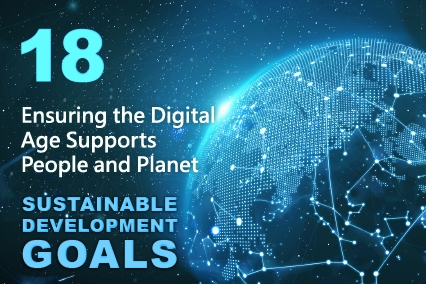The Missing SDG: Ensuring the Digital Age Supports People and Planet

2030 is the acceptance schedule of the United Nations Sustainable Development Goals (17 SDGs). As the time gets closer, nations of the world are preparing for midterm evaluation; and society is just beginning to imagine what a post-COVID world might be like at the same time.
While many uncertainties remain, one thing is clear, the lives of people and the transactions of our economy and government will move more and more online.
In 2015, 193 nations committed to the SDGs, which set out a transformative agenda that linked human health and prosperity to environmental health and equity. This holistic agenda is critical for people around the world.
But the crisis of COVID-19 in early 2020 highlights that it is incomplete. The SDGs failed to address the governance of one of the most powerful forces defining humanity’s future: the digital age.
Current status: Digital gap accelerates social risks and uncertainties
The digital age is disrupting social systems and driving transformations at a scale and pace unparalleled in history. Decades ago, philosopher and media theorist Marshall McLuhan inspired the aphorism “We shape our tools, and thereafter our tools shape us.”
Indeed, today digital technologies are shaping what we read and consume, our votes, and how we interact with each other. Many risks and uncertainties are emerging, including threats to individual rights, social equity, and democracy, all amplified by ‘the digital divide’. The digital divide is the differential rate of internet penetration and access to digital technologies around the world which results in a greater wealth gap.
Our initiative: SDG18 — Ensuring the Digital Age Supports People and Planet
Along with the great risks of harm comes massive opportunities. We believe that we can steer society towards our common goals as expressed through the SDGs, including net-zero carbon emissions and a more equitable global society, by making good use of the wider influences of the digital age.
In the digital age, power can be decentralized from the top to stakeholders, social norms of consumption can be shifted towards low carbon products, and society’s mindset shifted from fossil fuels to renewables.
Because of that, we need a new SDG — SDG18 — focused on the digital age, which outlines clear targets for leveraging this transformative force to benefit both people and the planet.
Source: The Missing SDG: Ensure the Digital Age Supports People, Planet, Prosperity & Peace
